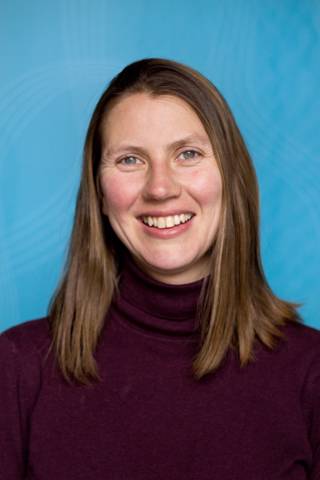How urbanization, demography, and physical factors condition dynamics of peace, conflict and development
Urbanization and Environment

Over half the world’s population now lives in cities, with this number to reach 70 percent by 2050. Moreover, climate change poses one of the greatest challenges of this century. Focusing on the city as a site, and urbanization, demographic and environmental change as processes, the Urbanization and Environment research group examines how spatial, demographic and physical factors condition human affairs, and their implications for peace and conflict dynamics.
The group takes a multi-disciplinary perspective, engaging researchers using both qualitative and quantitative approaches. Researchers use disaggregated data and approaches to understand cross-scale dynamics of linkages between urbanization, demography, the environment and sociopolitical outcomes; and engage comparative approaches to understand the relevance of local factors and conditions.
Selected research themes include:
- Interrelations between governance, institutions and violence in urban areas
- Implications of linkages between urbanization and climate change
- Demographic causes and consequences of armed conflict
- The security implications of climate variability
- Conflict and cooperation over resource accessibility and distribution
- Spatial patterns and drivers of armed conflict.
Halvard Buhaug Awarded ERC Advanced Grant
Research Professor Halvard Buhaug has been awarded an Advanced Grant by the European Research Council (ERC) for the project "POLIMPACT: Enabling Politically Sensitive Climate Change Impact Assessments for the 21st Century".
Nina von Uexkull Receives Major Award
Associate Professor at Uppsala University and PRIO associateNina von Uexkull has been awarded the prestigious Oscar Prizefor her work on security implications of climate change.
Halvard Buhaug Contributes to the IPCC's Latest Climate Report
Yesterday, the Intergovernmental Panel on Climate Change (IPCC) released the second part of its Sixth Assessment Report.
Halvard Buhaug Contributes to IPCC Sixth Assessment Report
Halvard Buhaug is a chapter lead author in the forthcoming IPCC Sixth Assessment Report.
What predicts asylum migration flows?
In a new study published in Nature Communications,PRIO researchers use a machine-learning analysis framework to identify leadingpredictors of contemporary asylum migration to the European Union.
New special issue on climate change and conflict
The Journal of PeaceResearch has just published a new special issue on ‘Security implicationsof climate change’ (January 2021), guest edited by Nina von Uexkull and HalvardBuhaug.
Young Researcher Talent Funding for Kristian Hoelscher
Kristian Hoelscher has been granted YRT funding from the Research Council of Norway for the three-year project Political Transformation in African Cities (PACE).
Green Curses Project Receives RCN Funding
Congratulations to the team that has secured NORGLOBAL funding from the Research Council of Norway for the 3-year project Green Curses and Violent Conflicts: The Security Implications of Renewable Energy Sector Development in Africa.
Now Funded: TRUST: A Project on the Impact of Refugees on Host Communities
Despite the magnitude of displacement, extant knowledge on how refugees affect host populations is derived almost exclusively from Western societies.
Successful Doctoral Defense by Elisabeth Lio Rosvold
We congratulate Elisabeth Lio Rosvold on the successful defense of her PhD thesis today, 08 November 2019! Dr Rosvold’s thesis entitled ‘Coping with Calamity: Natural Disasters, Armed Conflict and Development Aid’ was defended at the Norwegian University of Science and Technology (NTNU), Department of Sociology and Political Science.
Middle Classes, Moving and Staying in Metro Manila
PRIO Paper
Urbanization and political change in Africa
Journal article in African Affairs
What is in a number? Some reflections on disaster displacement modelling
Journal article in International Migration
Scientific Evidence Supports UN Security Council Engagement with Climate Change
PRIO Policy Brief
Architecture, Politics and Peacebuilding in Medellín
Journal article in Peacebuilding
Should the Security Council Engage with Implications of Climate Change? Let’s Look at the Scientific Evidence
Popular article in Global Observatory
Environment and Conflict
Book chapter in What Do We Know about Civil War. Second Edition
Pandemic Micropolitics in Latin America: Small Business and the Governance of Crisis From Above and Below in El Salvador
Journal article in Journal of Politics in Latin America
Context is key: Why moderation is needed at the climate-conflict nexus
Popular article in 49security
Climate change and conflict
Journal article in Nature Reviews Earth & Environment
Climate Change, Conflict and Russia's War on Ukraine: Consequences for Global Food Security
Klima og sikkerhet: Hva gjør Norge?
Shifting Paradigms: Moving Forward in Syria
Reconceptualising and Responding to Urban Crises
The Environment – Reason for Optimism, or Reason to Panic?
Climate Change and Humanitarian Consequences
Norsk utviklingspolitikk – fra tusenårsmål til bærekraftsmål
Natural Resources in the Global South - A Blessing or a Curse?
How Can Improved Food Security Alleviate Conflict?
Climate Change and Conflict: New Research for Defense, Diplomacy, and Development
Conflict Trends
Enabling Politically Sensitive Climate Change Impact Assessments for the 21st Century (POLIMPACT)
Energy in Cyprus and East Mediterranean
Hyper-development and unresolved conflict
Political Change in African Cities (PACE)
Rethinking Varosha
Coordinator

Siri Aas Rustad
Research Director





